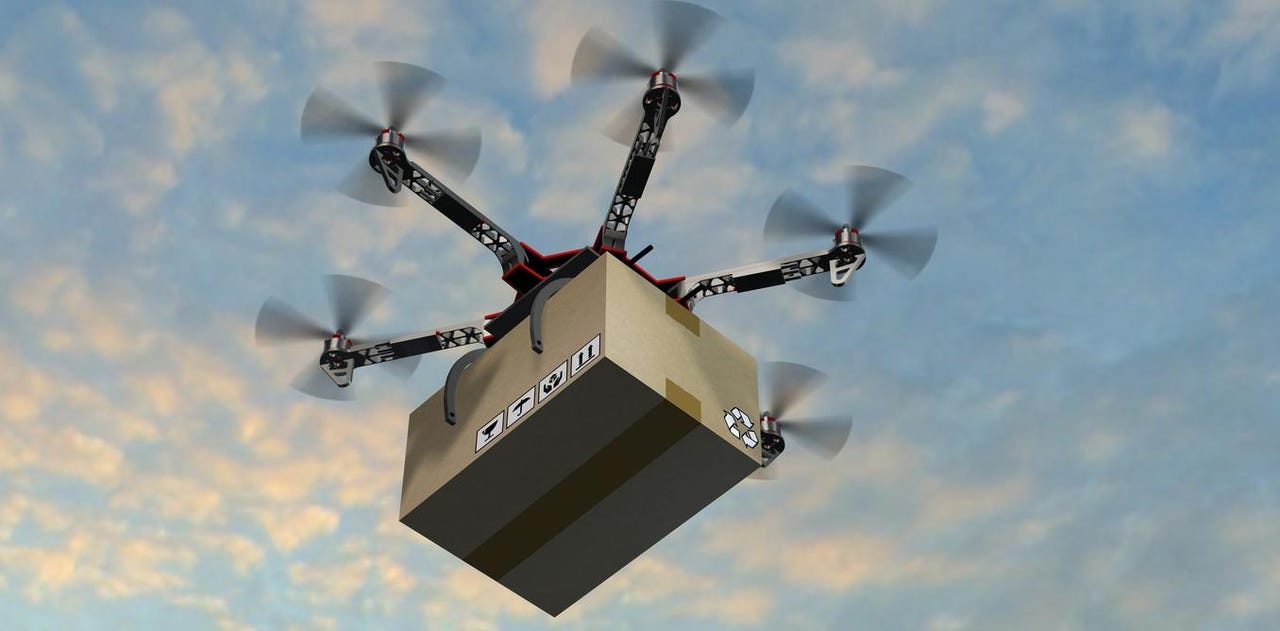Davos develops drone regulation how-to for governments (and the FAA should pay attention)


Read also
At its annual meeting in Davos, Switzerland, the World Economic Forum launched what it's calling the Advanced Drone Operator's Toolkit. While that may sound like a development package for drone nerds, it's actually a set of guidelines, recommendations, and lessons-learned for governments looking to roll out commercial drone operations.
Also: Using a 4K drone to diagnose roof damage
The Toolkit is a response to the hodgepodge of drone regulations worldwide, which has some countries (like Belgium and other European nations) adopting drone delivery and drafting legislation that reflects the evolution of autonomous technology, and others (notably, the U.S.) pumping the brakes on commercial drones in populated areas. In essence, it's an open-source guidebook, and its aim is to accelerate drone adoption and implementation by helping governments understand the issues and escape the pitfalls of regulatory stagnation.
In the U.S., drone services companies and logistics suppliers have been frustrated by a stringent regulatory environment that restricts many kinds of non-recreational drone use. The FAA has made overtures toward drone delivery with its Unmanned Aircraft System (UAS) Integration Pilot Program, but it could be years before there's a practical framework for commercial drone activity over populated areas.
Deployment of small unmanned aircraft is restricted under the FAA's Rule 107. Currently, small drones must stay within line of site of an operator, can't be autonomous, and can only fly over people with their express consent, factors that make it all but impossible to scale delivery anywhere other than niche environments like golf courses.
The World Economic Forum is hoping other governments don't fall into the same trap.
"Safe, clean, inclusive and scaled drone use has become the goal of many nations," said Harrison Wolf, report author and project lead at the Forum's Centre for the Fourth Industrial Revolution. "Now, governments can learn from the real-world success of world leading drone delivery projects in Africa and Europe to develop their own national oversight. Through comparative analysis of shared lessons, learned by governments and private players, this toolkit means governments don't have to start from scratch and can begin societally important, socially responsible operations. We are really looking forward for the initializing of the pilot project in India."
Must read
- Best Drones for 2019 (CNET)
- 17 drone disasters that show why the FAA hates drones (TechRepublic)
Ten civil aviation authorities from five continents, eight international governmental organizations, and 23 private companies, including AirMap, contributed to development of the Toolkit. Evidently it's already having the desired effect. The Indian state of Andhra Pradesh announced at the Davos Summit that it will start implementing the policies and recommendations in a bid to introduce state-wide drone delivery operations.
"Andhra Pradesh is proud to be the first government partner to implement the Advanced Drone Operations Toolkit," said Lokesh Nara, Minister for Information Technology and Rural Development in Andhra Pradesh. "We look forward to leveraging the insights from the toolkit to implement a drone delivery program that will bring key medical supplies to communities across our State."
The Toolkit was developed in collaboration with the governments of Rwanda and the government of Switzerland, as well as with the Drone Innovator's Network (DIN).